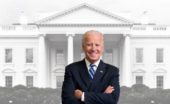Re Ian Bremmer 'Could third-party candidates upend the 2024 US election?' 3 April The current political movement in the USA…
Wednesday Night #1259 – Dr. René Roy and Cuba
Written by Diana Thebaud Nicholson // April 19, 2006 // Herb Bercovitz, Wednesday Nights // Comments Off on Wednesday Night #1259 – Dr. René Roy and Cuba

19 April 2006
Introduction
Appropriately for the 45th anniversary of the disastrous Bay of Pigs invasion [see also archival material released on the 40th anniversary] much of this evening’s discussion related to Cuba.
Background
To many Canadians, Cuba appears anachronistic and illogical. While on friendlier terms with several potentially more dangerous Latin American countries, where poverty and social conditions are as critical the United States remains at arm’s length with communist Cuba. In order to understand the evolution, one must look at Fidel Castro’s accession to power and although, personally, more an activist than Marxist, one must examine how he was influenced by Che Guevara and the U.S.S.R.
Castro, an activist during his student days, came to power at 33 , a relatively immature man with a history of oppression. It is important to remember that Castro was and is a socialist and not a Marxist, unlike Che Guevara. Largely due to his brashness and inexperience, he was rebuffed by the West, mostly the U.S., and turned to the U.S.S.R. for support, constituting at that time, a real threat to the U.S. because Russia imposed on Cuba the installation of the missiles which led to the The Cuban Missile Crisis, October 18-29, 1962. JFK understood that this was a Russian initiative and negotiated the stand-down directly with Khrushchev.
Guevara , an Argentinean physician encountered the poverty as a student that led him to believe that only revolution could mitigate the misery that he had witnessed throughout Latin America.
Che Guevara is dead and Cuba, though still a poor country, has evolved, but for reasons not clearly understood by many, the U.S. government has not seen it as being in its best interest to re-establish relations with Cuba.
With free education and free health care, Cuba has made great strides in the scientific world, with Canada benefiting in some instances.
A scientific breakthrough and a human success story
Such is the case of an exciting breakthrough in the production of the first synthetic vaccine against pneumonia and meningitis, thanks to the collaborative efforts between Cuban scientists and Doctor Réné Roy, and their respective universities.
The body’s response to bacterial invasion is the production of antibodies specifically designed to counteract the antigens produced by the bacteria. Vaccines stimulate the production of specific antibodies without causing the illness. Traditionally, vaccines are produced by culturing the bacterium or an attenuated form of the bacterium, usually in an egg, killing it, then injecting it in order to cause the body to produce the antibodies without undergoing the illness. While this usually works very well, there are instances of egg allergy, as well as the unforeseeable effects of injecting unnecessary bacterial debris such as biological and genetic material.
The Cuban-Canadian team has successfully synthesized the pure antigen, leading to a much safer product. Contrary to what might be expected of a socialist government, while the clinical trials were still being conducted, the Cubans, showing a high degree of entrepreneurship, developed in parallel the production facilities for the vaccine, including certification from WHO.
An interesting aspect of this story is that thanks to the policy of the Cuban government and the personal philosophy of Dr. Roy, the vaccine is being produced at relatively low cost, with only small royalties paid to its patent holders, namely the universities and research investigators involved. Thus ensuring the widest possible distribution in the developing world. Had the inventors not patented the product, it is most likely that a large pharmaceutical company, taking advantage of a “first-to-file” patent jurisdiction would have adapted the process and sold the product at a much higher cost.
The economy
Echoing Martin Barnes’ comments to the Financial Post, the IMF today published a hopeful report on the global economy predicting another year of GDP growth of nearly 5%. Especially good news is that as many of the best recent economic performances have been in developing countries, the benefits of expansion may be enjoyed by some of the world’s poorest
The stock market remains bullish, despite the skittishness of investors who, unused to a bull market of this length, look for signs of decline with each minor correction, or in the event of an unanticipated natural, political or terrorist-initiated disaster, or in the increasing price of petroleum. Interest rates remain low and commodity prices are rising. Insofar as the latter is concerned, the anticipated catastrophic effect of gasoline price increases never really came about at the thirty, forty, fifty or sixty dollar price level of crude, nor is it likely to at seventy, eighty or ninety dollars. Petroleum although great as raw material for the production of plastics, is really a very poor energy source. Human ingenuity remains strong and one can be confident that an alternative fuel will be found before the industrial world drops to its knees due to unacceptable prices or unmanageable world events.
Although conventional wisdom would disagree, the world has become much more stable and while Greenwich remains the guardian of time and Paris, the repository of the standard metre, London and New York no longer claim the monopoly on world trade, so that the market can much more easily absorb the shock of a disaster in any part of the world as it has in the past. While it is probably true that a new terrorist attack on New York or London would provoke a greater reaction than in the past, repeated terrorist attacks appear to pass with hardly a glitch as they become more common. The only foreseeable perceivable serious effect would be the addition by the U.S. of still another additional layer of protective procedures, which could impede the free exchange of goods and people.
In other words, the future still looks reasonably good for the market in Canada . Interest rates will probably rise modestly here, but not sufficiently to have an inflationary effect. Unsettling concerns include Nigeria, Iran, Israel and Palestine, and the possibility of civil war in Iraq; and in the more intermediate term, climate changes, inevitable in the absence of human sensitivity to what is happening in that area.
The U.S. economy
In 2007 a trillion dollars worth of residential mortgages will come up for renewal in the U.S. in the face of increasing interest rates, decreasing personal savings rates and increasing debt repayment. Savings are negative for the first time since the great depression. The housing market has already been affected. New home sales have been declining and housing inventories are rising but so far, there is no sign of a bursting bubble.
Financial markets
The bull market persists. It is interesting that with the market up eighteen hundred points, investors are bearish, recalling only the drops. After six years of generally strong growth, a bear market can be anticipated at the end of this year or in 2007. The fifteenth or seventeenth of this month should see a low which should be seen as a buying opportunity, followed by a recovery. Gold and oils should continue to rise.
P R O L O G U E
In history, April 19 is an important, albeit somewhat somber date. As recently as a year ago, it saw the election of Joseph Ratzinger as Pope Benedict XVI; however [or moreover, depending on your point of view)], the Oklahoma City bombing happened on 19 April, ’95; the Bay of Pigs invasion ended in disaster in 1961; German troops first entered the Warsaw ghetto on this date in 1943. In 1933, FDR announced the end of the gold standard, and in 1904 much of Toronto was destroyed by fire. Earlier (1775), the first battle of the American Revolution took place in Concord and Lexington, Massachusetts; and in 1587, Sir Francis Drake sank the Spanish fleet in Cadiz harbour.
Numerous illustrious individuals were born, or died on this date, but we will mention only the birthday of Glenn Seaborg, the American chemist and Nobel Prize laureate for chemistry as this serves as the segue to an important topic this week, as does the fifth anniversary of the day when the world’s biggest pharmaceutical companies backed out of the landmark court battle over legislation permitting generic versions of their patented anti-Aids drugs to be made in or imported to South Africa.
This Wednesday’s special guest, savant, humanist and Professor René Roy, is an expert in medicinal chemistry who may be described as an architect or builder of molecular structures. In addition to creating molecules to develop drugs and vaccines, he works on deciphering the mechanisms involved in triggering specific diseases. Since the spring of 2004, Dr. Roy is the Canada Research Chair in Therapeutic Chemistry
In collaboration with Dr. Vicente Verez-Bencomo of Cuba, he has developed a pneumonia vaccine also effective against Type-B meningitis, and he now wants to use his expertise to combat other bacterial diseases infecting many children in developing countries.
His research should also have a considerable impact on the health of Canadians, as it leads to a better understanding of the mechanisms underlying infections, faster diagnosis, improvements in treatment of diseases, and a reduction in the number of organ rejections after transplants.
His publications are too numerous (and the titles too technical) to be mentioned here.
Equally impressive are the awards he has received including:
Ottawa Life Sciences Council Annual Achievement Awards, Basic Research Award, 2001 Recipient and the Agilent Technologies Foundation Health Award of the Tech Museum Awards, an international Awards program that honors innovators from around the world who are applying technology to benefit humanity
Expect talk of Cuba [there is, coincidentally an essay in the New York Times Magazine by Anthony DePalma which is adapted from his book “The Man Who Invented Fidel: Castro, Cuba and Herbert L. Matthews of The New York Times,” to be published later this month], of medicinal needs of developing countries and, possibly the fascinating story of 12-year-old Hannah Clark’s reversed heart transplant
Nor can we ignore the Revolt of the Generals against Donald Rumsfeld and the startling conclusions of the New York Times’ David Brooks, that “If you just looked at his résumé, you might think he was the best person to lead the Pentagon in time of war, but in reality he was the worst because his whole life had ‘misprepared’ him for what was to come. He was prepared to fight organizations. He was not prepared to fight enemies.”
You may also wish to do a little homework on national “ecological debt” in view of the New Economics Foundation (Nef) and the Open University report that this year, as of April 16, the UK is about to run out of its own natural resources and become dependent on supplies from abroad.



